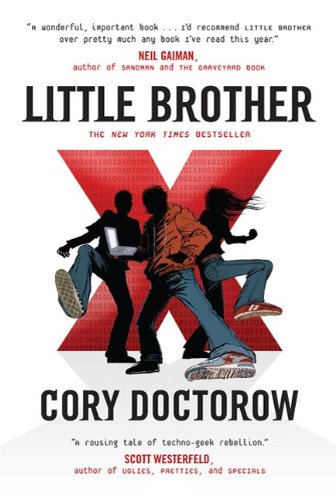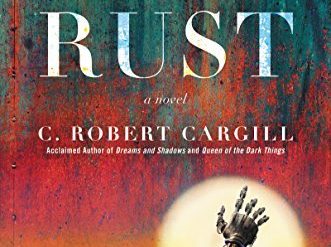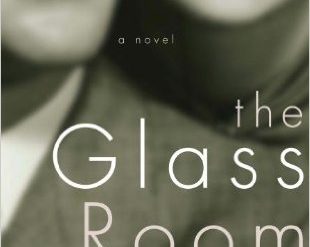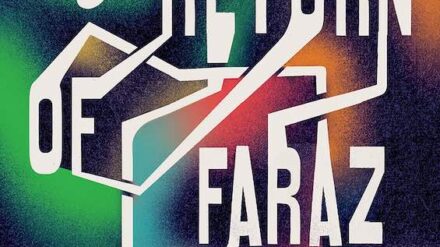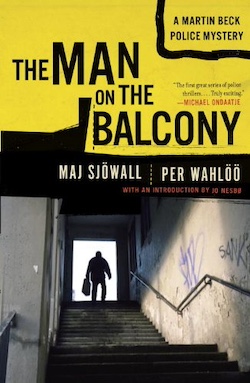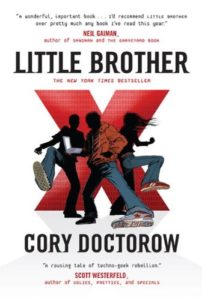
Welcome to dystopia. In Little Brother, the Department of Homeland Security runs amok in San Francisco after terrorist bombings take out the Bay Bridge and the cross-bay BART tunnel with the loss of more than 4,000 lives. The city is flooded with heavily armored agents who seize anyone who looks suspicious to them. This seems to mean mostly teenagers and people of color. 15-year-old Marcus Yallow, a talented programmer and gamer, is out on a walk with his three best friends when they are all roughly apprehended by DHS agents, trussed up and tossed into the back of a huge truck, and moved to a secret jail ten minutes away from the city. There, Marcus is subjected to abusive questioning that verges on torture before he is released, days later, shaken and furious. All of which triggers a teenage rebellion.
This, we soon learn, was all a big mistake. DHS has taken on the wrong 15-year-old.
Using his advanced programming skills and intimate knowledge of online security and encryption, Marcus sets out to organize a teenage rebellion to take back the city. Drawing his friends into his net, along with their friends and their friends’ friends, Marcus soon becomes the coordinator of hundreds of teenagers. This is a force that proves formidable even against the massed might of the Department of Homeland Security—and the resources of the White House, which unsurprisingly has instigated the DHS coup. With civil liberties suspended and the government’s goons acting more and more brutally as resistance mounts, the rebellion predictably spreads to the more thoughtful adults in the city. We can all guess where things are going—but we’ll still be surprised by the ending.
Little Brother by Cory Doctorow ★★★★★
About the author
Cory Doctorow is widely viewed as one of the leading lights of the new generation of science fiction writers. As of mid-2017, he has written ten novels and at least seven works of nonfiction. He’s also a prolific blogger on copyright law, digital rights management, file-sharing, and post-scarcity economics. Little Brother was Doctorow’s fourth novel.
In his review for the New York Times Sunday Book Review, Austin Grossman treated Little Brother as a young adult novel—a natural instinct given the teenage protagonist and the peripheral roles of adults. Like so many contemporary YA novels, however, Little Brother can be rewarding for readers of any age. Grossman wrote, “An entertaining thriller and a thoughtful polemic on Internet-era civil rights, “Little Brother” is also a practical handbook of digital self-defense. Marcus’s guided tour through RFID cloners, cryptography and Bayesian math is one of the book’s principal delights. . . . This is territory the author knows well . . . His grasp of the implications of present-day information technology is authoritative. . .”
For related reading
For more good reading, check out:
- These novels won both Hugo and Nebula Awards
- The ultimate guide to the all-time best science fiction novels
- 10 top science fiction novels
- The top 10 dystopian novels
- Ten new science fiction authors worth reading now
And you can always find my most popular reviews, and the most recent ones, on the Home Page.

